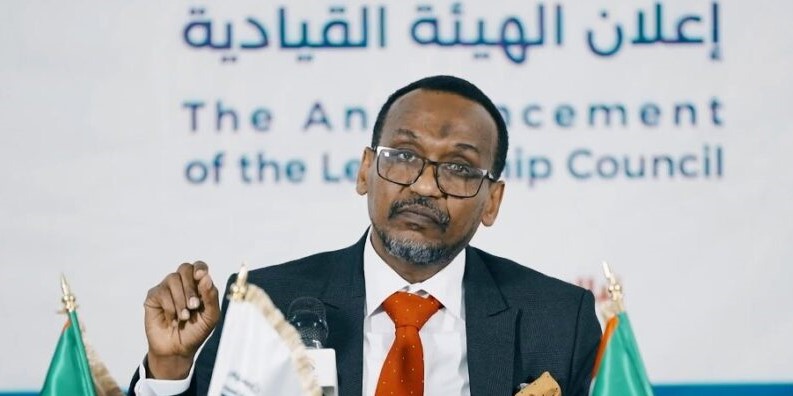The paramilitary Rapid Support Forces (RSF) and allied groups on Tuesday formalized a new governing coalition, appointing RSF commander Mohamed Hamdan Dagalo, widely known as Hemetti, as its leader and rebel leader Abdelaziz Adam al-Hilu as his deputy.
The announcement, made at a press conference in Nyala, the capital of South Darfur State, marks a step toward establishing a parallel administration in RSF-held territories after more than a year of war with Sudan’s army.
The coalition, dubbed “Tasis” (Founding), first emerged in February when the RSF, al-Hilu’s Sudan People’s Liberation Movement-North (SPLM-N), and other political and civil factions signed a charter in Nairobi. Its launch was reportedly delayed by internal disputes.
Alliance spokesman Alaa al-Din Nugud told Radio Tamazuj that the group had finalized its charter and formed a 31-member leadership council. Alongside Hemetti and al-Hilu, Makin Hamid Tirab was named rapporteur, Nugud said.
Nugud denounced what he called “the old Sudan” and its “corrupt, collapsing institutions,” urging supporters to help build a new state.
“Ending the war now requires confronting the party that ignited it and seeks to prolong the conflict by sabotaging negotiations,” he said.
The leadership bureau will act as the alliance’s executive arm, with additional committees to be formed as needed, Nugud added.
The envisioned government, he said, is not an end in itself but a tool to implement a new national project based on “non-negotiable constitutional principles” focused on citizens’ needs.
The council includes both signatory representatives and independent figures, Nugud noted, emphasizing that the alliance spans political factions, armed groups, unions, professionals, and marginalized communities.
“Roles have been clearly distributed among the leadership, future government, and presidential council to share political, negotiation, and service-delivery responsibilities,” he said.
Nugud said the move helps unify civilian forces but requires “clear recognition of why past alliances failed and the roots of Sudan’s crisis,” which he blamed on “cultural, political, and economic marginalization.”
Tasis’s charter, he added, outlines “how Sudan should be governed” through fixed constitutional principles, offering a path for groups seeking to break from Sudan’s troubled history.




